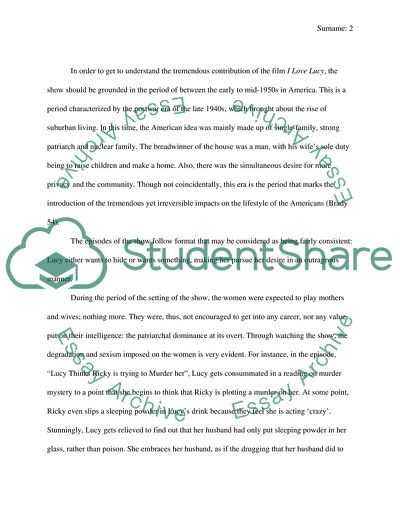Cite this document
(The Role of Women in the First Season of I Love Lucy Coursework, n.d.)
The Role of Women in the First Season of I Love Lucy Coursework. https://studentshare.org/visual-arts-film-studies/1848156-i-love-lucy-and-the-role-of-women-season-1
The Role of Women in the First Season of I Love Lucy Coursework. https://studentshare.org/visual-arts-film-studies/1848156-i-love-lucy-and-the-role-of-women-season-1
(The Role of Women in the First Season of I Love Lucy Coursework)
The Role of Women in the First Season of I Love Lucy Coursework. https://studentshare.org/visual-arts-film-studies/1848156-i-love-lucy-and-the-role-of-women-season-1.
The Role of Women in the First Season of I Love Lucy Coursework. https://studentshare.org/visual-arts-film-studies/1848156-i-love-lucy-and-the-role-of-women-season-1.
“The Role of Women in the First Season of I Love Lucy Coursework”. https://studentshare.org/visual-arts-film-studies/1848156-i-love-lucy-and-the-role-of-women-season-1.


